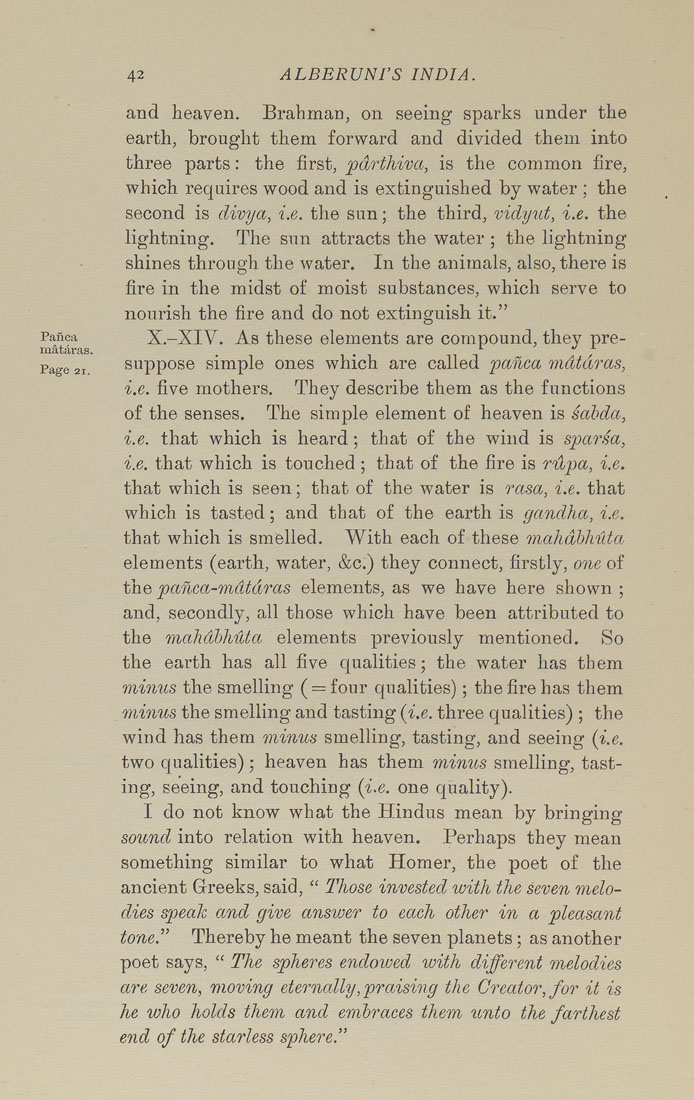42 ALBERUNPS INDIA.
and heaven. Brahman, on seeing sparks under the
earth, brought them forward and divided them into
three parts: the first, pdrthiva, is the common fire,
which requires wood and is extinguished by water ; the
second is divya, i.e. the sun; the third, vidyut, i.e. the
lightning. The sun attracts the water ; the lightning
shines through the water. In the animals, also, there is
fire in the midst of moist substances, which serve to
nourish the fire and do not extinguish it."
Paiica X.-XIV. As thcsc elements are compound, they pre-
mataras. . i • i n i /
Page 21 suppose Simple ones which are called panca mdtaras,
i.e. five mothers. They describe them as the functions
of the senses. The simple element of heaven is sabda,
i.e. that which is heard ; that of the wind is sparsa,
i.e. that which is touched; that of the fire is rilpa, i.e.
that which is seen; that of the water is rasa, i.e. that
which is tasted; and that of the earth is gandha, i.e.
that which is smelled. With each of these 7nahdhhuta
elements (earth, water, &c.) they connect, firstly, one of
the panca-mdtdras elements, as we have here shown ;
and, secondly, all those which have been attributed to
the mahdhhuta elements previously mentioned. So
the earth has all five cjualities; the water has them
minus the smelling ( = four qualities); the fire has them
minus the smelling and tasting (i.e. three qualities) ; the
wind has them mimes smelling, tasting, and seeing (i.e.
two Cjualities); heaven has them minus smelling, tast¬
ing, seeing, and touching (i.e. one quality).
I do not know what the Hindus mean by bringing
sound into relation with heaven. Perhaps they mean
something similar to what Homer, the poet of the
ancient Greeks, said, " Those invested with the seven melo¬
dies spieak and give ansioer to each other in a pleasant
tone." Thereby he meant the seven planets; as another
poet says, " The spheres endowed with difi'erent melodies
are seven, moving eternally, praising the Creator, for it is
he who holds them and embraces them unto the farthest
end of the starless sphere."
|








